In-person teaching continues
Special Collections is delighted to have resumed in-person small group teaching from the start of this semester, in line with government guidance. We have worked very hard to provide a Covid-safe environment, following the University’s Covid Code. These classes provide essential experiential learning and are similar to lab sessions for researchers in the humanities. We are glad to be able to continue the tradition of enabling students to engage with real items from the collections in pursuit of their learning objectives of understanding the materiality of archives and rare books, and gaining the skills needed in their future research.
Core teaching has been offered through the School of History (Introduction to Palaeography modules ME5105/MS5121 and MO5033 taught by Dr Margaret Connolly and Rachel Hart) and Material Bibliography (MO5032 taught by Elizabeth Henderson) and the School of English (the first half of both EN5015 Reading the Medieval Text and EN5032 Shakespeare and Textual Culture taught by Dr Margaret Connolly and Rachel Hart). In addition, one-off classes have supported the work of academic colleagues teaching modules in Art History, Divinity, Social Anthropology, Modern Languages and History during this semester.
Here Ansley, one of last year’s Medieval Palaeography students, reflects on what the opportunity to encounter our collections in class meant for her.
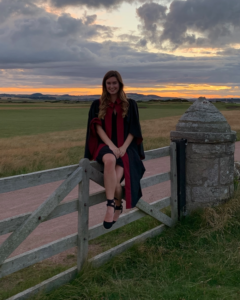
“I grew up in a small town in Tennessee before going to my undergraduate university in Chicago. In the heart of a large metropolitan city it was easy to become just another student shuffling along. St Andrews could not have been more different. The passion of everyone involved, along with the unique opportunities provided by an ancient institution drew me to the university.
The paleography module was one of my favorite courses I have ever taken. It was the first-time during university that, as a history student, I felt I was gaining practical experience rather than theoretical knowledge. Each week we spent almost the entire class working hands-on with documents hundreds of years old. For a history kid like me, this was extraordinary. No longer were these incredible artifacts sealed within glass cases only to be looked at. I got to touch them, inspect them and use them to further my understanding of the person who originally wrote them. This was a valuable experience that changed everything I thought I knew about what it meant to be a historian.
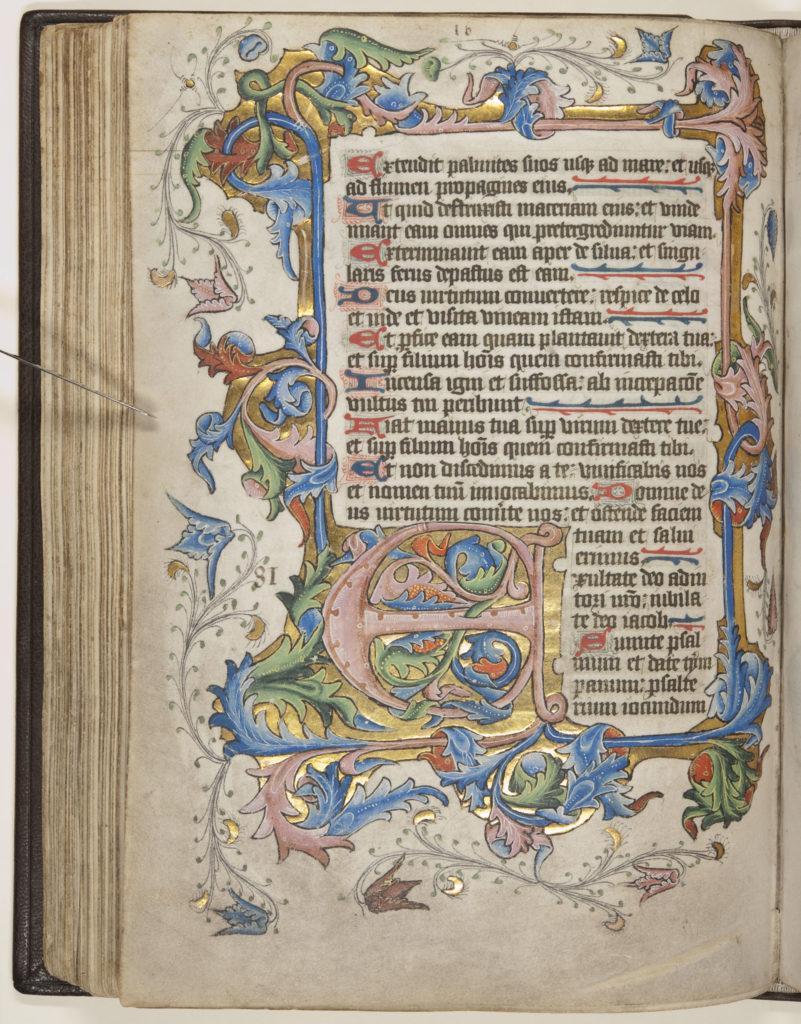
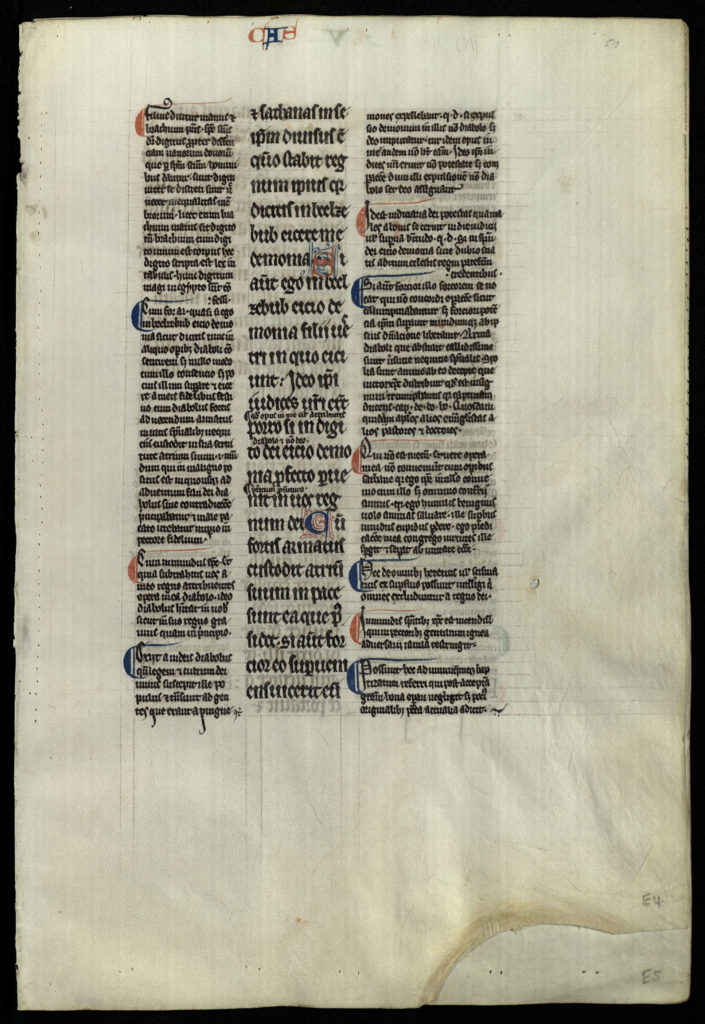
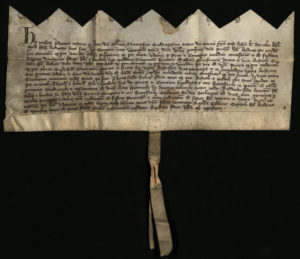
Many universities do not offer the privilege for students to interact with precious documents and books at such an intimate level on a weekly basis. Each class brought a new element of paleography centered around pieces from the Library’s Special Collections. It would be so difficult to choose a favorite one, but the pieces that I remember the most were the charters. It was so profound to think you’ve been learning about the effects these documents had for years in class and now they were sitting in front of you, seal and all. It really made me feel connected to what I was studying. It was not just some imaginary person a thousand years ago. They were real, they were alive, and they created this document I was touching.
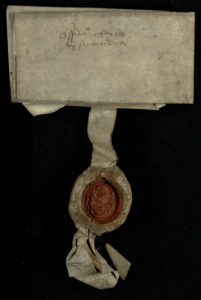
Learning how to pull the information from the documents, such as the provenance, physical condition, ink and handwriting, I no longer have to accept what is written about a piece of evidence. I have the skills to investigate for myself. I feel like these skills are the last piece of the foundation of strong future research. I really felt like a little archaeologist each week, digging out as much information I could from these documents.
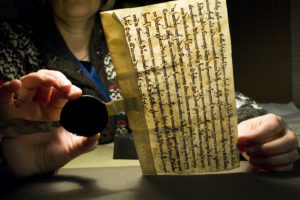
I now have the ability to understand where the evidence I am using comes from, not just the actual words. I think this interaction with the Special Collections materials makes St Andrews graduates stronger and more well-rounded historians. We are equipped with practical skills that set us apart from other graduates, which will hopefully put us a step ahead in the job market.”
Ansley Whitmer
Graduating MLitt in December 2020